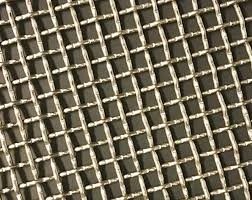Dic . 17, 2024 00:05 Back to list
Choosing the Right Wire for Farm Field Fencing Solutions
Understanding Field Fencing Wire A Comprehensive Guide
Field fencing wire plays a vital role in agricultural and rural settings, serving as a barrier to contain livestock, protect crops, and delineate property boundaries. Choosing the right type of wire can significantly impact the effectiveness and longevity of a farming operation. In this article, we will explore the different types of field fencing wire, their applications, and the factors to consider when selecting the appropriate wire for specific needs.
Types of Field Fencing Wire
There are several types of field fencing wire, each designed for specific purposes and environments. Here are some of the most common varieties
1. Barbed Wire Known for its sharp barbs, this type of fencing wire is primarily used for containing livestock and deterring intruders. Barbed wire creates a formidable barrier but can pose a risk to animals if not installed correctly. It’s often used in conjunction with wood or metal posts and can be an effective low-cost option for larger areas.
2. High-Tensile Wire Made from steel that is drawn to a high tensile strength, this wire is incredibly durable and resistant to stretching. High-tensile wire is often utilized for electric fence systems, providing a reliable option for keeping livestock within designated areas. Its tensile strength makes it ideal for long spans and hilly terrains where flexibility is necessary.
3. Smooth Wire This type of wire is commonly used for different purposes, from high-tensile fencing to providing support for vine crops. Smooth wire lacks the barbs present in barbed wire, making it safer for animals. It’s essential for creating a simple boundary or framework where animals won't get injured.
4. Field Fence Typically woven rather than strung, field fencing consists of vertical and horizontal wires, creating a mesh-like structure. This type of fence is particularly effective for keeping small animals contained, such as sheep and goats, while also providing a visual barrier.
Applications of Field Fencing Wire
Field fencing wire is an integral part of agricultural infrastructure
. Its applications are broad, including- Livestock Containment Fencing wire is crucial for keeping animals like cattle, horses, and sheep within designated areas, which helps prevent injuries or losses due to straying.
- Property Boundaries Many property owners use fencing wire to delineate their boundaries. This not only provides a clear indication of property lines but can also help prevent disputes with neighbors.
field fencing wire

- Crop Protection A well-constructed fence can protect crops from wildlife, reducing potential damage from deer, rabbits, and other animals that may graze on valuable produce.
- Security Fencing wire acts as a barrier against trespassers and thieves, offering security to both property and livestock.
Factors to Consider When Choosing Field Fencing Wire
Selecting the right field fencing wire requires careful consideration of various factors
1. Purpose Understanding the primary use of the fence will dictate the type of wire needed. Will it primarily contain livestock, or will it serve as a boundary marker?
2. Animal Type Different animals have different needs. For instance, goats require stronger fencing due to their propensity to escape, while horses may need a fence that minimizes the risk of injury.
3. Terrain The geographical features of the land can influence the choice of fencing. Hilly or uneven terrain might benefit from high-tensile wire due to its flexibility and durability.
4. Weather and Environmental Conditions Areas with high humidity, heavy rainfall, or extreme temperatures may require rust-resistant materials or treated wire to ensure longevity.
5. Budget While it’s tempting to choose the cheapest option, investing in high-quality fencing wire can lead to lower maintenance costs and greater durability over time.
Conclusion
Field fencing wire is more than just a barrier; it’s an essential tool for effective land management in agricultural and rural areas. By understanding the various types, their applications, and the factors influencing your choice, you can make informed decisions that enhance both productivity and safety. Whether protecting crops, containing livestock, or establishing property lines, the right fencing wire can make all the difference in your farming operations.
-
Weather Resistance Properties of Quality Roofing Nails
NewsAug.01,2025
-
How Galvanised Iron Mesh Resists Corrosion in Harsh Environments
NewsAug.01,2025
-
Creative Landscaping Uses for PVC Coated Wire Mesh Panels
NewsAug.01,2025
-
Common Wire Nail Dimensions and Their Specific Applications
NewsAug.01,2025
-
Choosing the Right Welded Wire Sheets for Agricultural Fencing
NewsAug.01,2025
-
Anti - Climbing Features of Razor Wire Barriers
NewsAug.01,2025









